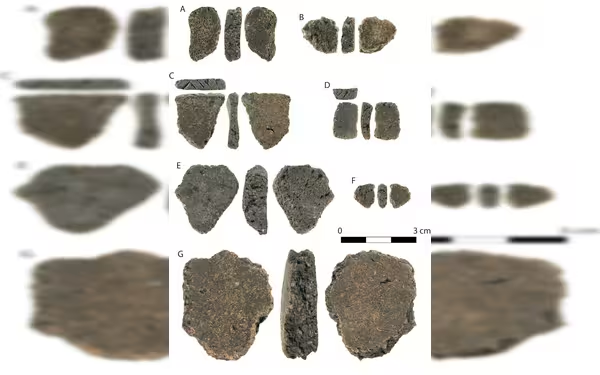Sunday, June 30, 2024 07:00 PM
Monash University uncovers ancient pottery fragments in Great Barrier Reef
- Oldest pottery fragments found on Great Barrier Reef date back 2,000-3,000 years
- Discovery challenges colonialist stereotypes about Aboriginal communities
- Earliest offshore island settlement on northern Great Barrier Reef revealed through excavation
 Image Credits: The Conversation
Image Credits: The ConversationArchaeologists from Monash University uncover oldest pottery fragments on Great Barrier Reef, challenging stereotypes and revealing ancient trade practices dating back 2,000-3,000 years.
Archeologists have made a groundbreaking discovery on the Australian island of Great Barrier Reef, unearthing the oldest pottery fragments that shed light on ancient trade practices dating back 2,000 to 3,000 years ago. The findings, recently published in the journal Quaternary Science Reviews, were uncovered by Traditional Owners and archeologists who found broken pottery parts buried beneath the island's surface.
The research, led by Senior author Ian McNiven from Monash University, marks a significant milestone in Australian, Melanesian, and Pacific archaeology. McNiven emphasized that these discoveries challenge colonialist stereotypes by showcasing the complexity and innovation of Aboriginal communities.
It took researchers approximately two years to identify the pottery pieces amidst a collection of fish, turtle bones, and charred plant materials. This discovery follows a previous finding in 2006 on Jiigurru, where similar pottery pieces were found but remained unattributed in terms of origin and age.
Further excavation revealed that the deepest layers of the midden at Jiigurru were deposited between 6,510 to 5,790 years ago, making it the earliest offshore island settlement on the northern Great Barrier Reef. The archeologists speculate that the ancestors of the current Traditional Owners of Jiigurru were part of an extensive trading network that involved cultural exchanges with pottery-making communities in Papua New Guinea.
Ngurrumungu Elder Brian Cobu expressed the significance of research projects like this in enhancing the understanding and preservation of the land. Such discoveries not only enrich our knowledge of the past but also provide valuable insights into the ways in which ancient communities interacted and thrived.













